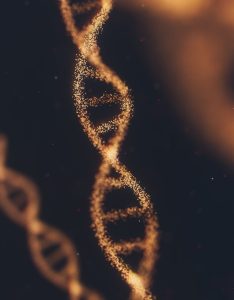Introduction: Research on prehistoric genetic material has resulted in revolutionary findings that are transforming the records of ancient European hunters. Currently a greater insight regarding their movement patterns and the diversity of their genes. Through analyzing archaic genetic material, researchers have discovered unexpected findings about their DNA composition. These individuals have also found data regarding
Introduction:
Research on prehistoric genetic material has resulted in revolutionary findings that are transforming the records of ancient European hunters. Currently a greater insight regarding their movement patterns and the diversity of their genes. Through analyzing archaic genetic material, researchers have discovered unexpected findings about their DNA composition. These individuals have also found data regarding the way they migrate and social connections with other cultures. The publication examines the noteworthy results extracted from study of DNA from ancient sources. It alters our perception of early cultures and reveals on the daily routines of European gatherers.
Unraveling Genetic Makeup:
Using ancient DNA analysis, academics have uncovered the genetic structure of Europe’s prehistoric hunter-gatherers. The investigation refutes preconceived assumptions and uncovers surprising realities. The examination has discovered genetic heterogeneity and elaborate population formations. This shows that these communities were not uniform but included separate groups with specific genetic traits. The DNA composition of the hunter-gatherers in Europe reveals a mosaic of forebear descents and indicates varied beginnings and movement patterns.
Migration Patterns and Cultural Interactions:
Genetic analysis of ancient DNA has transformed the way we comprehend concerning the flow and societal connections of the ancient European hunter-gatherer populations. Through the comparison of DNA information collected from various people and areas, experts have mapped the migration of these ancient groups throughout Europe. The study has given important findings regarding the movement and genetic variation of these communities. Remarkably, the study has discovered widespread movement and mixing among factions. This questions the concept of remote gatherer-hunter societies. The results indicate a intricate network of cultural interaction and social exchanges between different groups in early historical periods.
Cultural Exchange and Adoption:
A unexpected findings in study of ancient DNA is confirmation of cultural interchange and assimilation among hunter-gatherer societies in Europe. DNA information has given understanding of the transfer of traditional behaviors and technological advancements among different societies. As an illustration, the practice of cultivating crops by indigenous societies can be detected through genetic signatures. It shows the expansion of emerging cultural customs and the mixing of different lifestyles.
The results dispute the long-held belief regarding hunter-gatherer communities as stagnant entities. It emphasizes the skill to adjust and assimilate aspects of nearby cultures. It emphasizes the ever-changing character of ancient civilizations and their ability for societal transformation and inventive thinking.
Reshaping our Understanding:
The findings using ancient DNA examination are transforming our perception of early Europe and the groups of early gatherers. These remarkable facts defy deep-rooted beliefs. They depict a more subtle representation of our old forefathers. The combination of DNA information with archaeological and social evidence gives a broader comprehension of the complicated social, cultural, and genetic interactions of the European prehistoric era. The integration enables scientists to discover fresh perspectives regarding the movement patterns, family relationships, as well as cultural interactions that formed the prehistoric groups of the region.
Furthermore, this research carry wider significance related to our knowledge of the interactions between humans, migration, and cultural aspects globally. The consequences go beyond the designated region investigated and carry importance for a worldwide scope. These emphasize the interconnectivity across human groups and the elaborate network of the evolution of humans. We encourage everyone to reconsider the accounts of our past and adopt the complexity and diversity of our shared tradition.
Conclusion:
Research on ancient DNA has greatly impacted our knowledge regarding Europe’s hunting and gathering societies. This has rewritten the historical records and uncovered unexpected information related to their genetic formation, movement patterns, and cultural exchanges. This research question traditional beliefs and offer a new perspective relating to the livelihood of ancient forebears. As studies on ancient DNA continues to advance, we can eagerly await additional findings that will further mold our interpretation of human history. The extraordinary adventure of the hunter-gatherer communities in Europe demonstrates the endurance and ability to adjust of our predecessors.


















Leave a Comment
Your email address will not be published. Required fields are marked with *